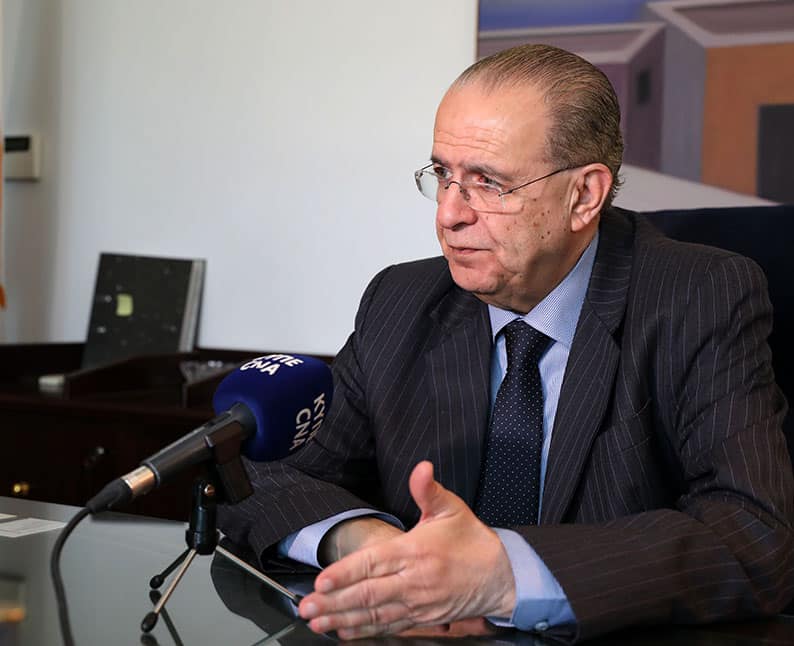Foreign Minister Ioannis Kasoulides announced a modification in foreign policy in a newspaper interview on Sunday, saying the government would focus on promoting the president’s confidence building proposals rather than the pursuit of sanctions against Turkey.
In an interview published in Kathimerini, Kasoulides said the discussion of sanctions at a political level, at the EU’s Foreign Affairs Council (FAC), had been exhausted “as there are member states that do not want to impose sanctions on Turkey”. The demand for sanctions would not be withdrawn, but its discussion would take place at technocratic level, he said.
Regarding the discussions at the FAC, Kasoulides said: “What they [member states] say is that they consider sanctions counter-productive, that they would not make Turkey change stance on Varosha, but what was needed were confidence-building measures. They will see our policy. Instead of sanctions we will present CBMs [confidence building measures].”
He was referring to the proposals by President Nicos Anastasiades, regarding the handing over of fenced-off area of Varosha to the UN, putting the Famagusta port customs services under EU authority to facilitate trade with the outside world and the operation of Tymbou (Ercan) airport under the UN.
Agreement to the latter two measures would end the ‘isolation’ and the embargo that the Turkish Cypriots were complaining about, Kasoulides told Kathimerini. In exchange for agreeing to opening up the north to trade and international flights, the Cyprus government wants Turkey to implement the additional Ankara protocol, by opening ports to ships under the Cyprus flag and allowing Cyprus planes to enter Turkish airspace.
These confidence-building proposals were also the main theme of a speech by President Anastasiades given at a church on Sunday, saying his proposals were not intended to deceive anyone. He also said that sanctions would “stay at technical committee which would process them further”, adding that the proposed CBMs were “an indication of a positive step in the effort we are making to create the suitable and positive climate”.
Downplaying the sanctions, which were at the centre of the policy of the former foreign minister Nikos Christodoulides, had already received the thumbs up from the United States and European Union, Kasoulides told the interviewer.
“The reaction of US Secretary of State to the proposal for CBMs was positive,” he said. “Even more positive, with the desire to help was the Under-Secretary of State for Political Affairs, Victoria Nuland.”
Brussels was equally positive. Kasoulides said he had presented the proposals at a breakfast for ambassadors and the reactions were very positive. “I believe the capitals, Berlin and Paris and all the countries that can exercise influence would be willing to help.”
The foreign minister felt this change of policy had already led “to a marked change of climate in the last few weeks and certain expectations by the international community”.
He also took an indirect swipe at his predecessor.
“Without saying someone is to blame, we went through the phase of probable lack of trustworthiness and enter a different orbit that gives me the right to hope of better prospects in the coming weeks or months,” Kasoulides told Kathimerini.







Click here to change your cookie preferences